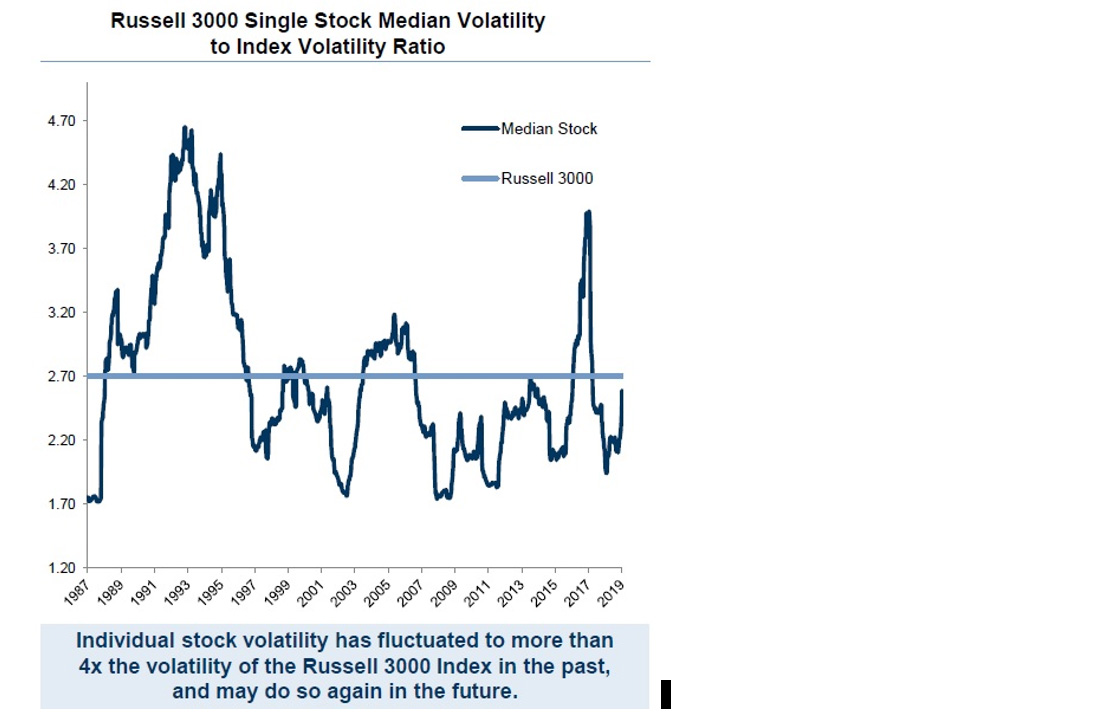4 Ways to Dilute a Concentrated Stock Risk
For investors, it’s possible to have too much of a good thing, and it can be disastrous to have too much of a bad thing. Is your portfolio overweighted in a single stock? Here’s how to tell and some strategies to help regain your balance.


Profit and prosper with the best of Kiplinger's advice on investing, taxes, retirement, personal finance and much more. Delivered daily. Enter your email in the box and click Sign Me Up.
You are now subscribed
Your newsletter sign-up was successful
Want to add more newsletters?

Delivered daily
Kiplinger Today
Profit and prosper with the best of Kiplinger's advice on investing, taxes, retirement, personal finance and much more delivered daily. Smart money moves start here.

Sent five days a week
Kiplinger A Step Ahead
Get practical help to make better financial decisions in your everyday life, from spending to savings on top deals.

Delivered daily
Kiplinger Closing Bell
Get today's biggest financial and investing headlines delivered to your inbox every day the U.S. stock market is open.

Sent twice a week
Kiplinger Adviser Intel
Financial pros across the country share best practices and fresh tactics to preserve and grow your wealth.

Delivered weekly
Kiplinger Tax Tips
Trim your federal and state tax bills with practical tax-planning and tax-cutting strategies.

Sent twice a week
Kiplinger Retirement Tips
Your twice-a-week guide to planning and enjoying a financially secure and richly rewarding retirement

Sent bimonthly.
Kiplinger Adviser Angle
Insights for advisers, wealth managers and other financial professionals.

Sent twice a week
Kiplinger Investing Weekly
Your twice-a-week roundup of promising stocks, funds, companies and industries you should consider, ones you should avoid, and why.

Sent weekly for six weeks
Kiplinger Invest for Retirement
Your step-by-step six-part series on how to invest for retirement, from devising a successful strategy to exactly which investments to choose.
Investors may have seen a large run-up in their technology stocks. Stocks like Apple, Facebook, Google and Amazon all have had a great run. However, there is a reason for the saying “Don’t put all your eggs in one basket.” It may have something to do with the risk of owning too much of one stock.
According to a recent Goldman Sachs Asset Management study, 23% of the stocks in the Russell 3000 Index (a broad measure of the U.S. stock market) lost more than a fifth of their value in an average calendar year from 1986-2019. The study found the average stock was more than three times as volatile as the Russell 3000 index itself (Source: FactSet, GSAM).

Source: Goldman Sachs Asset Management
Given the research from Goldman Sachs, investors with a large concentration in one stock may be on a wild and risky ride in the years ahead.
From just $107.88 $24.99 for Kiplinger Personal Finance
Become a smarter, better informed investor. Subscribe from just $107.88 $24.99, plus get up to 4 Special Issues

Sign up for Kiplinger’s Free Newsletters
Profit and prosper with the best of expert advice on investing, taxes, retirement, personal finance and more - straight to your e-mail.
Profit and prosper with the best of expert advice - straight to your e-mail.
Volatility is a measure of risk, or how much the stock price fluctuates. If a single stock is more than three times as volatile as the index, brace yourself for a wild ride. Volatility on the upside is a good thing. Negative volatility, or price decreases — as in case of Boeing, which is down 38% in the past year — can lead to steep losses (Source: Morningstar). That is why investment advisers preach diversification. Spreading the risk around different stocks can mitigate the effects any one stock has on the whole portfolio.
How Much Is Too Much of One Stock?
Despite research to the contrary, some investors are overweighted to one stock. When one stock is more than 10% of the portfolio, we call this a concentrated stock position, and a red flag goes up. There may be several reasons for the concentrated stock position. Some can't sell their company stock due to employer restrictions. Others don't want to pay the income tax on the gain. Some think the stock may go higher.
Investors should not underestimate the risk of owning too much of one stock – see Lehman Brothers, WorldCom, Enron, Pier One, Frontier Communications and Hertz to name a few examples.
What to Do about an Overweighted Portfolio
If you are concerned about the risk one large stock position has on your retirement nest egg (as you should be), here are four solutions to consider:
Gift Shares to Charity
Gifting stock to a qualified charity is one idea. Donating appreciated shares allows you to get rid of the stock and not incur the tax from selling. You want to gift the shares with the lowest cost-basis or the largest taxable gain.
Sell with Tax-Loss Harvesting in Mind
Before you sell the stock, see if you can use losses in other parts of the portfolio to offset the taxable gain. We call this tax-loss harvesting. This can only be done in non-retirement accounts. We manage several portfolios that actively harvest losses throughout the year when they come up. We try to match the harvested losses to the gain incurred from selling the concentrated stock position. This helps reduce the net taxable gain at the end of the year. The smaller the taxable gain, the less tax owed, which is a good thing.
Taxpayers can also deduct $3,000 of losses from their federal taxable income each year. Unused losses are carried forward to future years on your federal tax return, and some states may allow you to carry forward unused losses on your state tax return as well.
Exchange Fund
For more sophisticated and wealthy investors, an Exchange Fund swaps your stock for a pool of diversified stocks. Since it is a swap, and not a sale, there is no immediate income tax due. The benefit is the new pool of stocks provides greater diversification. Exchange Funds are relatively new, available only to Qualified Purchasers (defined as those with investable assets greater than $5 million) and illiquid — generally a seven-year lock-up.
Zero-Cost Collar

Investors can also use options to mitigate the downside of a stock's loss. One strategy is a "zero-cost collar." A zero cost-collar involves writing a call option — selling a call — and using the income to buy a put option on the underlying stock. Buying the put option gives you the right to sell the stock at a predetermined price. That comes in handy if the stock price drops. Writing the call option provides income to buy the put option, hence the "zero-cost."
It doesn’t always work out to a zero-cost, but it is usually close. The figure above illustrates a collar strategy with Chubb Stock (ticker symbol CB). Remember: Options involve risk, are complicated, and can reduce your upside. It's best to consult with an experienced professional before implementing.
The Biggest Risk
The biggest risk, in my opinion, is not having a plan to deal with a concentrated stock position. Letting the years go by without doing anything only complicates the problem. The stock position may get larger and the tax bill higher. In my opinion, a diversified portfolio should not have more than 10% of the assets in any one stock.
Luckily, as described above, there are several ways to manage a large stock position in a tax-efficient and smart way. It all starts with a plan.
The views and opinions expressed in this article are solely those of the author and should not be attributed to Summit Financial LLC. Investment advisory and financial planning services are offered through Summit Financial, LLC, an SEC Registered Investment Adviser, 4 Campus Drive, Parsippany, NJ 07054. Tel. 973-285-3600 Fax. 973-285-3666. This material is for your information and guidance and is not intended as legal or tax advice. Legal and/or tax counsel should be consulted before any action is taken.
Investment advisory and financial planning services are offered through Summit Financial LLC, an SEC Registered Investment Adviser, 4 Campus Drive, Parsippany, NJ 07054. Tel. 973-285-3600 Fax. 973-285-3666. This material is for your information and guidance and is not intended as legal or tax advice. Clients should make all decisions regarding the tax and legal implications of their investments and plans after consulting with their independent tax or legal advisers. Individual investor portfolios must be constructed based on the individual’s financial resources, investment goals, risk tolerance, investment time horizon, tax situation and other relevant factors. Past performance is not a guarantee of future results. The views and opinions expressed in this article are solely those of the author and should not be attributed to Summit Financial LLC. Links to third-party websites are provided for your convenience and informational purposes only. Summit is not responsible for the information contained on third-party websites. The Summit financial planning design team admitted attorneys and/or CPAs, who act exclusively in a non-representative capacity with respect to Summit’s clients. Neither they nor Summit provide tax or legal advice to clients. Any tax statements contained herein were not intended or written to be used, and cannot be used, for the purpose of avoiding U.S. federal, state or local taxes.
Profit and prosper with the best of Kiplinger's advice on investing, taxes, retirement, personal finance and much more. Delivered daily. Enter your email in the box and click Sign Me Up.

Michael Aloi is a CERTIFIED FINANCIAL PLANNER™ Practitioner and Accredited Wealth Management Advisor℠ with Summit Financial, LLC. With 21 years of experience, Michael specializes in working with executives, professionals and retirees. Since he joined Summit Financial, LLC, Michael has built a process that emphasizes the integration of various facets of financial planning. Supported by a team of in-house estate and income tax specialists, Michael offers his clients coordinated solutions to scattered problems.
-
 Quiz: Do You Know How to Avoid the "Medigap Trap?"
Quiz: Do You Know How to Avoid the "Medigap Trap?"Quiz Test your basic knowledge of the "Medigap Trap" in our quick quiz.
-
 5 Top Tax-Efficient Mutual Funds for Smarter Investing
5 Top Tax-Efficient Mutual Funds for Smarter InvestingMutual funds are many things, but "tax-friendly" usually isn't one of them. These are the exceptions.
-
 AI Sparks Existential Crisis for Software Stocks
AI Sparks Existential Crisis for Software StocksThe Kiplinger Letter Fears that SaaS subscription software could be rendered obsolete by artificial intelligence make investors jittery.
-
 Social Security Break-Even Math Is Helpful, But Don't Let It Dictate When You'll File
Social Security Break-Even Math Is Helpful, But Don't Let It Dictate When You'll FileYour Social Security break-even age tells you how long you'd need to live for delaying to pay off, but shouldn't be the sole basis for deciding when to claim.
-
 I'm an Opportunity Zone Pro: This Is How to Deliver Roth-Like Tax-Free Growth (Without Contribution Limits)
I'm an Opportunity Zone Pro: This Is How to Deliver Roth-Like Tax-Free Growth (Without Contribution Limits)Investors who combine Roth IRAs, the gold standard of tax-free savings, with qualified opportunity funds could enjoy decades of tax-free growth.
-
 One of the Most Powerful Wealth-Building Moves a Woman Can Make: A Midcareer Pivot
One of the Most Powerful Wealth-Building Moves a Woman Can Make: A Midcareer PivotIf it feels like you can't sustain what you're doing for the next 20 years, it's time for an honest look at what's draining you and what energizes you.
-
 I'm a Wealth Adviser Obsessed With Mahjong: Here Are 8 Ways It Can Teach Us How to Manage Our Money
I'm a Wealth Adviser Obsessed With Mahjong: Here Are 8 Ways It Can Teach Us How to Manage Our MoneyThis increasingly popular Chinese game can teach us not only how to help manage our money but also how important it is to connect with other people.
-
 Looking for a Financial Book That Won't Put Your Young Adult to Sleep? This One Makes 'Cents'
Looking for a Financial Book That Won't Put Your Young Adult to Sleep? This One Makes 'Cents'"Wealth Your Way" by Cosmo DeStefano offers a highly accessible guide for young adults and their parents on building wealth through simple, consistent habits.
-
 Global Uncertainty Has Investors Running Scared: This Is How Advisers Can Reassure Them
Global Uncertainty Has Investors Running Scared: This Is How Advisers Can Reassure ThemHow can advisers reassure clients nervous about their plans in an increasingly complex and rapidly changing world? This conversational framework provides the key.
-
 I'm a Real Estate Investing Pro: This Is How to Use 1031 Exchanges to Scale Up Your Real Estate Empire
I'm a Real Estate Investing Pro: This Is How to Use 1031 Exchanges to Scale Up Your Real Estate EmpireSmall rental properties can be excellent investments, but you can use 1031 exchanges to transition to commercial real estate for bigger wealth-building.
-
 Should You Jump on the Roth Conversion Bandwagon? A Financial Adviser Weighs In
Should You Jump on the Roth Conversion Bandwagon? A Financial Adviser Weighs InRoth conversions are all the rage, but what works well for one household can cause financial strain for another. This is what you should consider before moving ahead.